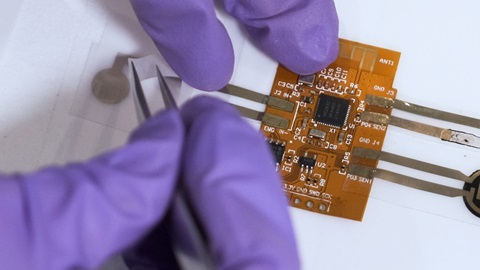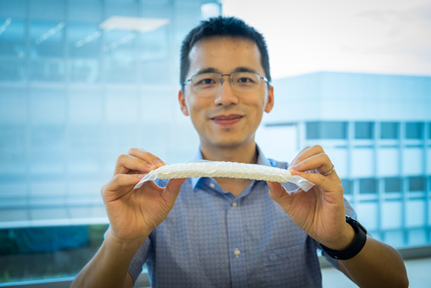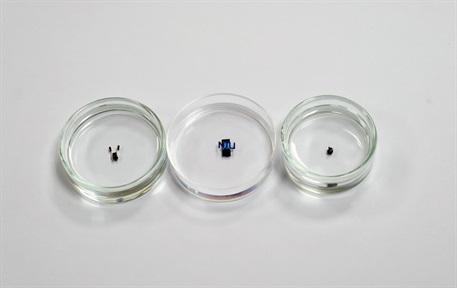Zapping Zika in the brain
Prof Cho Nam-Joon develops innovative therapeutics against Zika and other viruses, including those causing dengue and chikungunya.
 Prof Cho Nam-Joon holding a vial containing the antiviral peptide. Credit: NTU.
Prof Cho Nam-Joon holding a vial containing the antiviral peptide. Credit: NTU.
Declared an international emergency by the World Health Organisation in 2016, Zika came into the global spotlight when infections caused by the mosquito-borne virus were linked to microcephaly in newborn babies.
To combat the virus, Prof Cho Nam-Joon of NTU’s School of Materials Science and Engineering and an international team engineered highly bioactive peptides—short chains of amino acids—that could rupture the lipid envelope coating surrounding Zika virus particles.
The research team tested a lead peptide in Zika-infected mice and showed that it could cross the blood-brain barrier and eliminate virus particles in the brain, improving survival rates. Moreover, the peptide was also able to inactivate Zika-related viruses often co-transmitted by Aedes mosquitoes, including those that cause dengue and chikungunya.
The peptide has since been licensed to an NTU spin-off company, TSG Therapeutics. The researchers plan to test its therapeutic efficiency and safety in larger animals, and, if successful, to subsequently start clinical trials.












.jpg?sfvrsn=991791b1_0)
-clustering-around-a-build-up-of-toxic-beta-amyloid-(red)-(lkcmedicine-ntu-singapore-research).jpg?sfvrsn=115ae05_0)

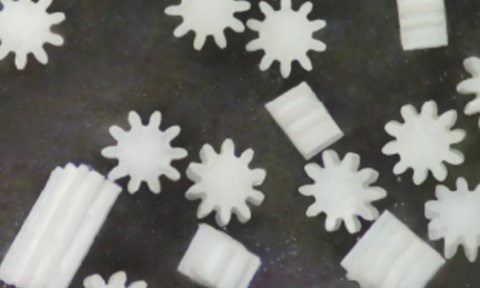
.tmb-listing.jpg?Culture=en&sfvrsn=a1456c00_1)
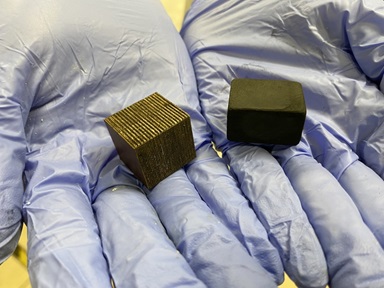
.tmb-listing.jpg?Culture=en&sfvrsn=d16821ec_1)
.tmb-listing.jpg?Culture=en&sfvrsn=e543a521_1)

.tmb-listing.jpg?Culture=en&sfvrsn=83fa0b1d_1)
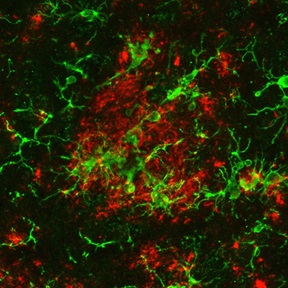

-and-professor-hu-xiao-from-ntu-singapore.tmb-listing.jpg?Culture=en&sfvrsn=d0bcffec_1)

